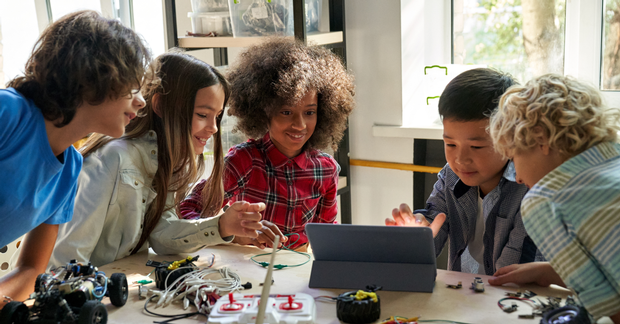Personality Type and Social Emotional Learning: Self-Awareness (SEL Series – Part 2)
Yvonne Nelson-Reid is a master practitioner for the Myers-Briggs Type Indicator® (MBTI®) instrument and a practitioner for the Murphy-Meisgeier Type Indicator for Children® (MMTIC®) assessment, who has been helping individuals, families, and children understand themselves better for over 25 years. In the second article of this series, Yvonne integrates her years of experience as an educator with her expertise in personality type to explore connections between type and social emotional learning. New to Type? Click here!
In part one of the series, Personality Type and Social Emotional Learning (SEL), I explained SEL as defined by the Collaborative of Academic, Social, and Emotional Learning (CASEL) organization.1 Furthermore, I suggested that SEL teaches an awareness of what we need to know for healthy development and learning personality type teaches how individuals go about doing so based on their natural styles. They go hand in hand. Personality type aligns with and strengthens SEL curriculum.
How does learning about personality type support the five core competencies of SEL? Parts two through six of this series will demonstrate the connection between type and SEL by focusing on each core competency, one at a time. I begin with Self-Awareness.
Self-Awareness
CASEL defines Self-Awareness as: “The abilities to understand one’s own emotions, thoughts, and values and how they influence behavior across contexts. This includes capacities to recognize one’s strengths and limitations with a well-rounded sense of confidence and purpose.”
Personality type reflects how we naturally take in information and make decisions, where we feel energized (inner world of reflection or outer world of connection), and how others may see us. Knowing this about ourselves helps us to become more aware of and appreciate who we are. It is more than just knowing our four-letter type-code; we need to understand it, apply it, and bring its language into everyday life. Understanding our typology leads us towards greater self-awareness.
What comes naturally to me? Why am I so different from my friends, family, and teachers? Why do some tasks seem so much harder for me and others so easy? People just don’t seem to get me! Whether our personality type characteristics are encouraged or discouraged has a huge impact on type development. Each of the 16 personality types has potential strengths (gifts) and stretches (possible blind spots). Our strengths may be someone else’s stretches and vice versa. Knowing what these are provides an opportunity to evolve and flourish in areas that suit our strengths, to feel confident, competent, and comfortable in who we are (our superpowers), and our stretches (limitations) offer us something incredibly powerful, too. That is in the realization that limitations aren’t a bad thing or something to feel embarrassed by, instead, they provide opportunities for personal growth and development. When we know our stretches, we can reach out to those people who have these as their strengths for support and learning. Appreciate our differences and learn from one another.
There are no better or worse personality types, just different ways of being and doing, different strengths and stretches. Knowing and understanding our strengths and stretches improves self-esteem and self-understanding. Although we have access to all the type preferences, we do not access them equally or with the same level of comfort. Type is developmental. As a young person, it may require greater focus and energy to engage with our stretches, whereas with maturity that may become easier.
Let me share an example of the first preference pair, Extraversion/Introversion, to demonstrate the type and self-awareness connection. We use both preferences, meaning we all interact with our outer world and reflect in our inner world. But we don’t tend to use them with equal comfort; people typically have a preference for one or the other. People who prefer Extraversion tend to focus on the outside world directing their energy outward often feeling energized by interaction with people and the environment. They prefer to talk things through, take action quickly, and are often expressive and open (strengths). Too much time alone with their thoughts can sometimes feel draining and may even lead to bouts of depression (cultivating the resources to find value in solitude is a stretch). Connecting with friends or doing an activity can help bring them back to balance. Without awareness, they may inadvertently talk over people who prefer Introversion or overwhelm them with too much chatter. Both preferences for Extraversion and Introversion are valuable, but without self-awareness of how our strengths and stretches manifest, we can act on our preference solely and miss the opportunities to learn through intentionally leaning into our stretch.
This is also true with a preference for Introversion, where energy is directed inwards. People who prefer Introversion tend to focus on their inner world so finding time to reflect on ideas, experiences, and memories can be energizing. They prefer to think things through, reflect before acting, and are often private and contained (strengths). Being around a lot of people and interaction can be exhausting so finding some time for contemplation will help to recharge (the stretch for a preference for Introversion is to identify the times when leaning into Extraversion is the best choice and becoming more developed in that capacity). Without awareness, they may unintentionally give off the vibe that they are not interested in the conversation or even like the person who prefers Extraversion. Remember, we use both Extraversion and Introversion every day, the emphasis here is on preference and knowing what you need to be your best. Not only knowing what you need but also the ability to convey it to others, letting them know when you might need a break to reflect or a conversation to work through your thoughts.
Teaching personality type awareness alongside the SEL core competency for Self-Awareness broadens perspectives, affirms, and supports differences, encourages constructive use of differences, while celebrating our uniqueness and interconnectedness as human beings. Self-awareness through an understanding of type allows you to apply your strengths and reinforce your stretches.
Part three of the series will focus on personality type and the SEL core competency for Self-Management.
1. "What Is the CASEL Framework?" CASEL, October 11, 2021. https://casel.org/fundamentals-of-sel/what-is-the-casel-framework/#self-awareness.



_thumb.png)















